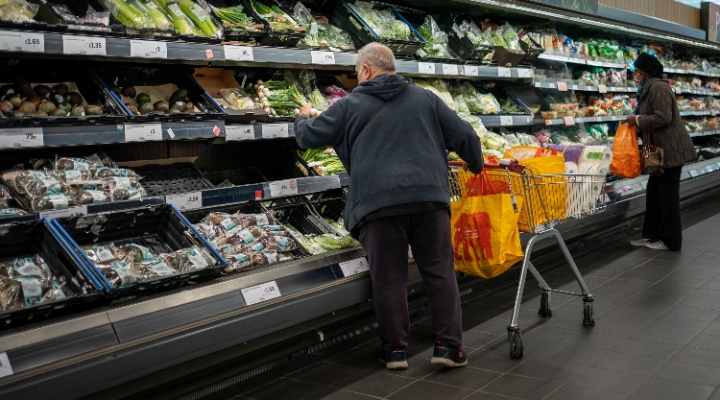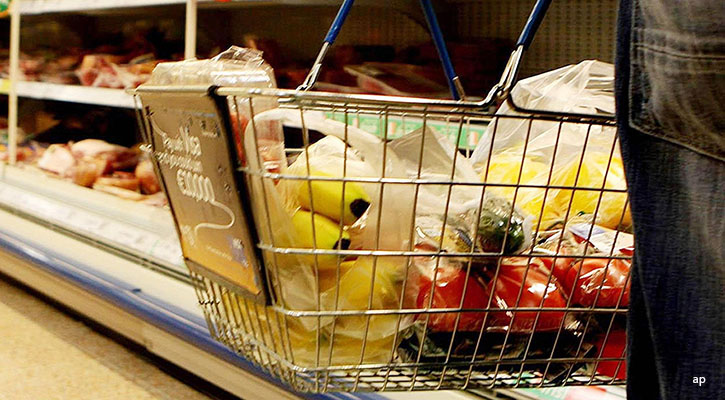
The UK's grocery sector had its busiest festive period since the onset of the Covid-19 pandemic four years ago, numbers from data insight firm Kantar showed on Wednesday, amid abating price inflation concerns among consumers.
Grocery sales in the 12 weeks to December 24 rose 6.9% to £36.45 billion from £34.10 billion a year before, Kantar said. In the final four weeks of that period alone, sales totalled £13.7 billion.
"Supermarkets saw their highest level of transactions in December since 2019," it said.
"Britons made 488 million trips to the supermarkets over the four weeks to 24 December – 12 million more than last year and the largest number at Christmas since pre-pandemic times."
The news comes with hopes that inflation is continuing to ease. Annual grocery price inflation in December decreased to 6.7% from 9.1% in the four weeks to November 26, and December's figure was the tamest since April 2022 – and the sharpest monthly slowdown Kantar has ever recorded.
Should Shoppers Still be Concerned About Inflation?
Analyst Fraser McKevitt says shoppers are still facing a grim time totting up their totals at the tills.
"The rate of inflation is coming down at the fastest pace we have ever recorded, but consumers are still facing pretty hefty pressures on their budgets," he says.
"Retailers were clearly working hard during the festive period to offer best value and win over shoppers, and promotions were central to their strategy. Nearly one third of all spend in the four weeks to Christmas Eve was made on items with some kind of offer, the highest level since December 2020 and £823 million more than last year."
For the full 12 weeks of the survey, the grocery inflation rate eased to 8.1% from 9.6% in the previous 12-week period.
By UK market share, Tesco [TSCO] remained the largest grocer. Its share edged up to 27.6% during the recent 12 weeks from 27.5% a year before. Sales rose 7.5% to £10.07 billion.
Sainsbury's [SBRY], meanwhile, recorded market share growth to 15.8% from 15.5%. Its sales were 9.3% higher at £5.77 billion.
"The traditional retailers always tend to do well in the run up to Christmas and this year was no exception," McKevitt notes.
"Supermarkets saw especially strong performances for their own-label lines, with sales of premium ranges like Sainsbury's Taste the Difference and Tesco's Finest lines surging by 11.9% compared with last year, hitting £790 million, and accounting for 5.7% of all grocery sales. Branded sales rose by 6.0% during the same period."
Ocado [OCDO] sales were 5.5% higher at £620 million. Its market share was unmoved at 1.7%. The online-only grocery firm is a joint-venture between Ocado Group and Marks & Spencer Group [MKS].
Tesco shares were up 1.3% to £2.97 each in London on Wednesday morning. Sainsbury's shares were 1.7% higher at £3.30. Ocado traded 1.6% lower at £7.27, while M&S was up 1.4% at £2.78.
Did Aldi and Lidl Beat Their Mainstream Rivals?
Aldi and Lidl also recorded market share growth. Aldi, which is the UK's fifth-most-popular supermarket, achieved a market share of 9.3%, up from 9.1%. Lidl's market share shot up to 7.7% from 7.2%. Aldi recorded sales growth of 9.9%, while Lidl saw a 14% jump.
Yesterday the discounting duo revealed Christmas trading patterns in the UK. Aldi said that it had UK sales of more than £1.5 billion for the first time in the month leading up to Christmas.
The chain, which has more than 1,010 stores across the UK, said sales rose by 8% on a year before in the four weeks to December 24. Its fellow German-owned rival Lidl reported annual UK sales growth of 12% in the four weeks to December 24.




























